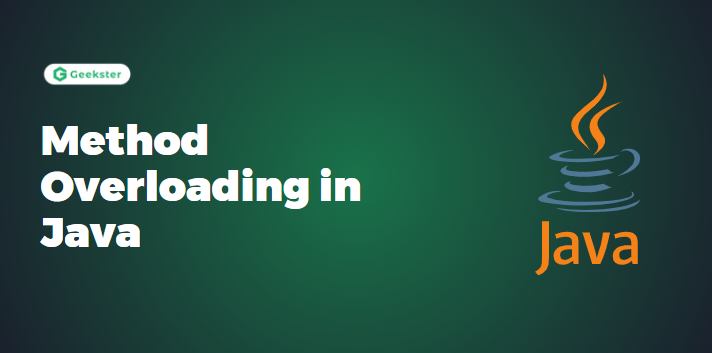Introoduction
Method overloading is a function in Java that allows a category to have a couple of method having the same name, if their parameter lists are one of a kind. It is a shape of collect-time polymorphism where the compiler determines which method to execute primarily based at the technique signature.
Key Points
- Same Method Name: Multiple strategies in the same magnificence may have the identical call if they have one of a kind parameter lists (exceptional variety of parameters or different varieties of parameters).
- Return Type: Method overloading could have the identical or extraordinary go back kinds, however the parameter listing need to vary.
- Access Modifier: Overloaded methods may have special get entry to modifiers (e.G., public, included, personal), but they cannot have more restrictive get admission to than the overridden technique.
- Exception Handling: Overloaded techniques can claim specific checked exceptions or no exceptions in any respect.
Example of Method Overloading
class Calculator {
// Method to add two integers
public int add(int a, int b) {
return a + b;
}
// Method to add three integers
public int add(int a, int b, int c) {
return a + b + c;
}
// Method to add two doubles
public double add(double a, double b) {
return a + b;
}
// Method to concatenate two strings
public String add(String a, String b) {
return a + b;
}
public static void main(String[] args) {
Calculator calc = new Calculator();
// Calling overloaded methods
System.out.println("Sum of 5 and 3: " + calc.add(5, 3));
System.out.println("Sum of 5, 3, and 2: " + calc.add(5, 3, 2));
System.out.println("Sum of 2.5 and 3.7: " + calc.add(2.5, 3.7));
System.out.println("Concatenation of 'Hello' and 'World': " + calc.add("Hello", "World"));
}
}
Output:
Sum of 5 and 3: 8
Sum of 5, 3, and 2: 10
Sum of 2.5 and 3.7: 6.2
Concatenation of 'Hello' and 'World': HelloWorldWhy Do We Need Method Overloading?
- Readability: Method overloading improves code clarity through presenting method names that are intuitive and easy to recollect.
- Flexibility: It permits unique techniques to perform similar obligations with differing types or numbers of parameters, enhancing the flexibility of method invocation.
- Code Reusability: Overloaded techniques can reuse the good judgment of a way with exclusive parameter configurations, promoting code reusability.
- Default Values: It gives a way to outline techniques with default parameter values with out the use of more than one constructors.
Rules for Method Overloading
- Method Signature: The parameter lists of overloaded techniques must range both within the number of parameters or inside the kind of parameters. Changing simplest the go back kind isn’t always enough.
- Return Type: The go back kind may additionally or won’t be distinctive.
- Access Modifier: Overloaded strategies may have exceptional get admission to modifiers, however they can not have extra restrictive get right of entry to than the overridden method.
- Exception Handling: Overloaded methods can declare extraordinary checked exceptions or no exceptions at all.
Example with Default Values
class Printer {
// Method to print an integer
public void print(int num) {
System.out.println("Printing integer: " + num);
}
// Method to print a double
public void print(double num) {
System.out.println("Printing double: " + num);
}
// Method to print a string
public void print(String text) {
System.out.println("Printing string: " + text);
}
// Method with default value
public void print(String text, int times) {
for (int i = 0; i < times; i++) {
System.out.println(text);
}
}
public static void main(String[] args) {
Printer printer = new Printer();
// Calling overloaded methods
printer.print(10);
printer.print(5.5);
printer.print("Hello");
printer.print("Java", 3);
}
}Output
Printing integer: 10
Printing double: 5.5
Printing string: Hello
Java
Java
JavaConclusion
Method overloading in Java lets in developers to outline a couple of methods with the identical call however distinctive parameter lists within the identical magnificence. It enhances code clarity, flexibility, and reusability through imparting a couple of methods to carry out similar obligations based totally at the technique’s parameters. Understanding method overloading is vital for writing green and maintainable Java code.
Frequently Asked Questions
Method overloading in Java allows a class to have multiple methods with the identical call but exclusive parameter lists.
No, approach overloading requires specific parameter lists (range or styles of parameters). Changing only the return kind isn’t sufficient.
Yes, overloaded strategies could have different access modifiers. They may have the identical, wider, or narrower get entry to modifiers than the overridden method.

